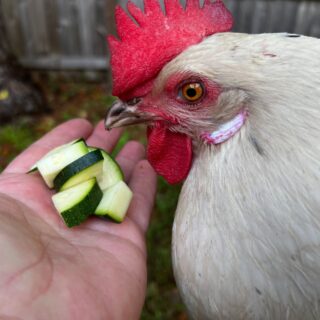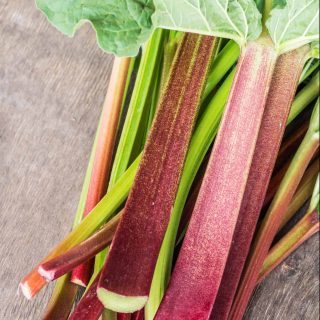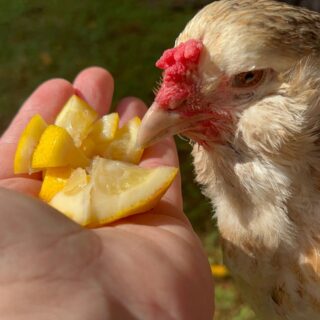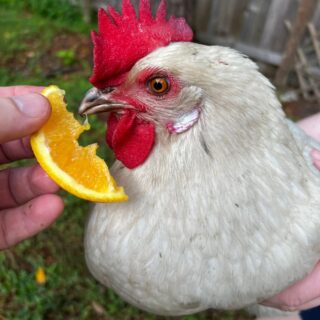Yes, chickens can eat bananas. Bananas provide a wide range of healthy nutrients for chickens including fiber and potassium. You can feed them to your chickens ripe or unripe just as long as they are not moldy.
Although bananas are safe for chickens to eat, you do need to be aware of how much they should consume, how to feed them and some other facts to keep your chickens healthy. Keep on reading to get all the details.
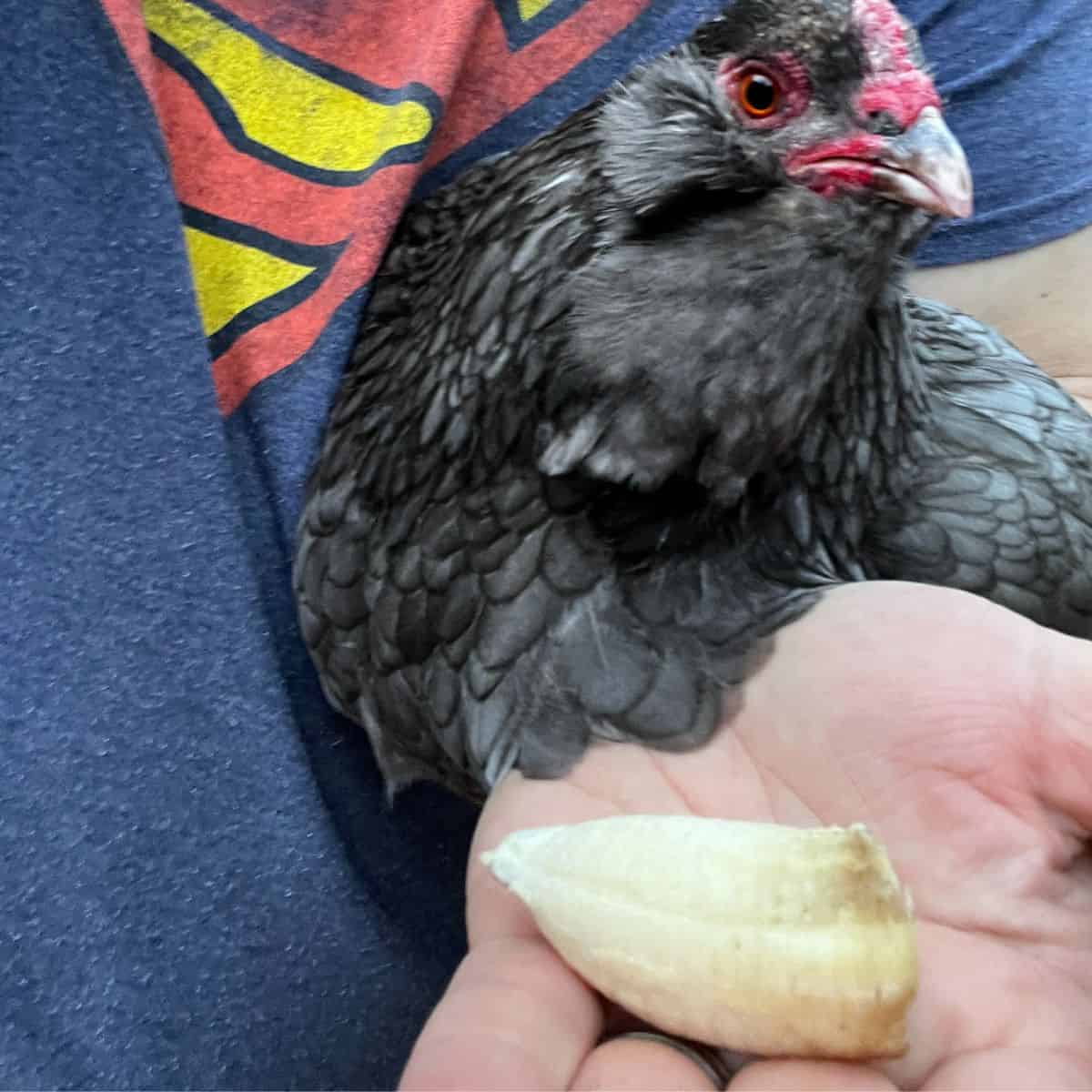
Jump to:
Are Bananas Safe For Chickens?
Yes, bananas are a safe treat for chickens. However, like just about any fruit, they need to be fed in moderation.
Chickens can eat apples, chickens can eat cherries, chickens can eat pears, chickens eat peaches and other fruits. However, fruits, in general, are high in sugar content and can throw off a chicken's natural nutritional balance.
So, you can feed them bananas, but in order to be sure your chickens are healthy, you also want to make sure they are also getting plenty of time to free range or have access to a well balanced layer feed.
How To Feed Your Chickens Bananas
Now that we know it's safe, how exactly should you feed bananas to your flock?
You can give unripe or ripe bananas, just be sure that they are not moldy or anything. Unripe bananas have less sugar content, so may be a tad healthier for them.
- Peel the banana
- Slice into into chunks ⅛ - ¼ inch. They should be small enough they won't get lodged in their throat; or big enough they have to peck them apart.
- Toss the banana chunks out to your flock (or give in a feed dish)
- You can also toss out a whole banana and they will peck pieces off.
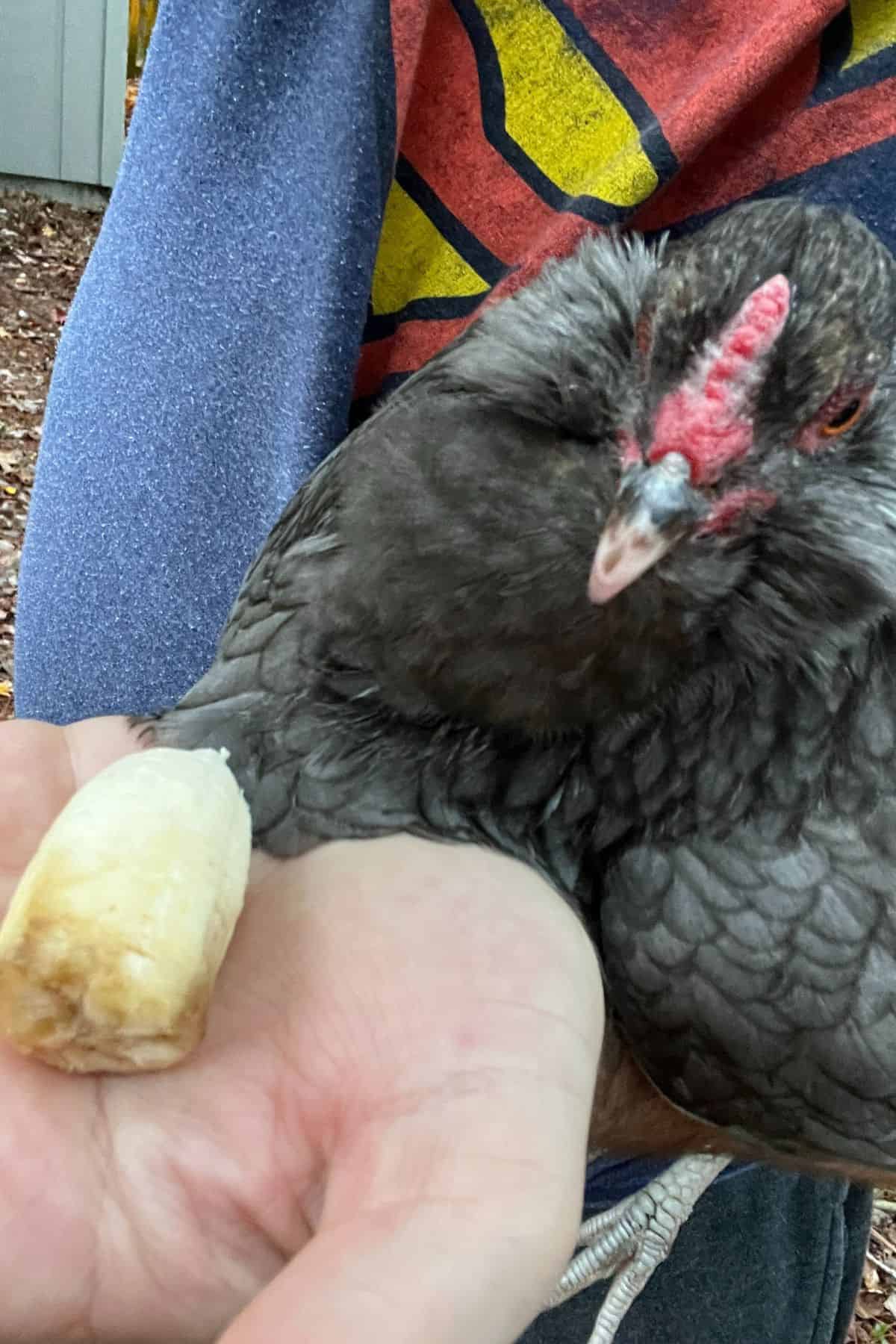
How Much Banana Can My Chicken Eat?
First, make sure you know how much to feed your chickens in general. Then, know that treats should only make up a small percentage of their overall diet. Otherwise you risk throwing off nutritional balances and getting overfed chickens.
Overfeeding chickens can lead to a host of issues such as egg laying problems and liver issues. So, you definitely want to avoid overfeeding them.
Tossing out one banana per every 3 - 4 chickens will allow each chicken to have a small treat, but not overdo it. And you probably don't want to do that every day.
Need some help keeping your chickens health and care taken care of? Check out the Organized Chicken Keeper for an easy to follow system.
Benefits of Bananas
So, what are the benefits of feeding your chickens bananas? There are some potential health benefits to feeding chickens bananas. Bananas are full of important nutrients like fiber, vitamin c, vitamin b6, potassium and magnesium.
- Vitamin B6: plays an important role in reproduction like fertilization and hatch rate of eggs. If they need more B6, chickens can eat lemons also.
- Fiber: helps with nutrient digestion, GI regulation and overall growth. Fiber is also a big nutrient benefit when feeding chickens figs and when feeding chickens strawberries.
- Potassium: Helps chickens maintain muscle strength and a healthy metabolism.
- Magnesium: helps with eggshell and bone formation.
Feeding Chickens Bananas FAQs
Yes, you can, but they tend to be thick, have minimal nutrition and more pesticides. So, if you do plan to feed them wash them first and have them cut very thinly on the slices. Or, boil them to soften them up.
No, it's best to skip banana bread as it has super ripe bananas and added sugar in it.
No, chickens should not eat banana pudding. It has too much sugar content.
Yes, they can. But make sure the pieces are appropriately sized. Also, you won't want to give them as large of a portion as adults.
If you need more help with taking care of your chickens, check out The Organized Chicken Keeper for a complete system for managing their health through keeping their supplies stocked and coop clean.

